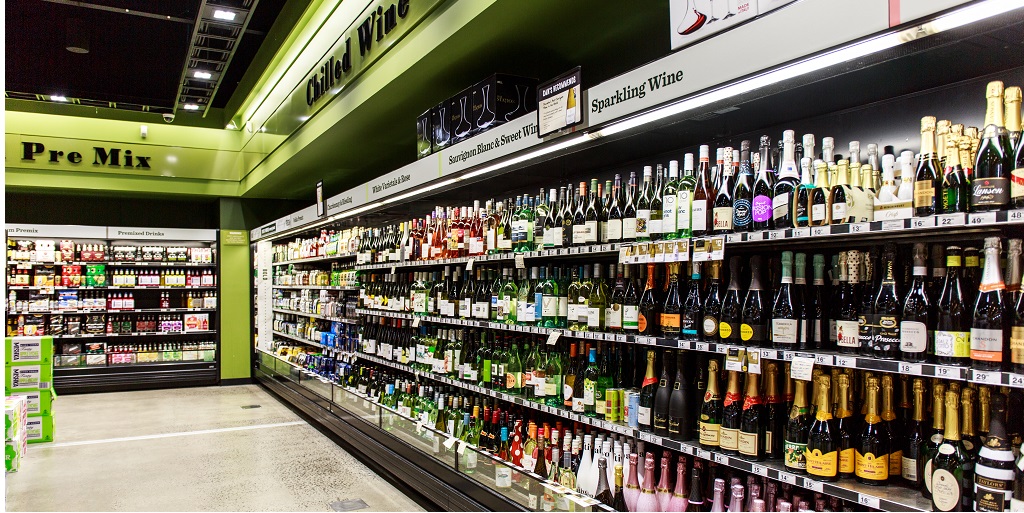
Endeavour and Coles sales up after March surge

Endeavour Drinks and Coles Liquor both saw surges in sales at the end of March according to their respective quarterlies published this week.
Both retailers also reported a change in consumer habits – as might be expected a move to online sales but also a change in mix away from premium towards more value and bulk items.
Q3 sales
In the Woolworths Group’s third quarter results published to the ASX yesterday for the three months to the end of March 2020, the supermarket giant reported returned revenues of $2.3 billion at Endeavour Drinks, owners of Dan Murphy’s and BWS.
This was up from $2.1 billion in the same period the year before, an increase of 9.5 per cent.
In their venue sector however, sales at hotels were down to $350 million from $402 million, a decline of 12.9 per cent.
Coles Liquor, owned by the Coles Group and which includes First Choice and Liquorland, also reported growth in the third quarter.
In results released on Wednesday (29th April) sales rose 6.1 per cent to $740 million from $697 million last year in the liquor segment.
Both Endeavour and Coles reported that sales were initially negatively impacted by bushfire smog and floods at the beginning of 2020, before being impacted by COVID-19 later in the quarter.
Coles said sales began to “materially elevate” in the latter part of March following the Federal Government’s decision to close hotels, pubs and other licensed venue operators, as well as the introduction of product limits by Coles Liquor stores soon after, in line with Retail Drinks voluntary restrictions.
Similarly January and February sales were “subdued” at Endeavour Drinks, but its brands saw a surge in demand from 22nd March, the day prior to the closures of venues. This surge was particularly prevalent in Victoria and New South Wales, it said.
However despite the surge, sales growth rates have “begun to moderate”, it said.
Online sales and change in mix
Both retailers reported changing consumer habits in the quarter due to both the bushfires and COVID-19, they said.
At Coles, the retailer acknowledged that it had experienced “margin deterioration during the period as customers moved towards more bulk and value-orientated items.”
Similarly, while sales at BWS grew, “some trading down was evident as customers shifted towards larger pack sizes and away from premium products”. This change in mix has now returned to normal, it said.
Endeavour Drinks revealed that following its announcement that 200 new suppliers had been brought on board, this number had grown closer to 300, with over 2,000 products brought onboard in the last four weeks.
The move to online sales was also prevalent, with online sales growing 43.1 per cent from $108 million to $155 million at Endeavour “as customers responded favourably to the additional convenience provided by online services”.
BWS online sales grew a reported 200% in one week, albeit from a low base, it said.
At Coles, refreshed websites were launched across three brands which delivered online growth of 34%, it said.
The company suggested that liquor is expected to continue to experience elevated sales as long as restrictions on licensed venues continues, along with margin deterioration due to a change in mix.
So are alcohol sales going up or down?
The results at first glance seem at odds with reports from alcohol industry bodies that overall alcohol sales have declined, but Andrew Wilsmore at Alcohol Beverages Australia said that both Endeavour and Coles have been experiencing long-term growth trajectories which could partly explain the growth.
“Both companies have been posting positive sales momentum for several quarters now, reflecting their business strategies and how they are responding to changing consumer needs,” Wilsmore said.
He also said that the results only show until the end of March, a week after the venue restrictions were put in place.
“March was when there was the surge in panic buying, so it was fully expected they would have an incrementally better quarter over and above that underlying momentum, compared to the last year.
“All reports are that retail trade returned to more normalised levels in April, with some retailers reporting their worst April result for many years.”
Indeed Endeavour admitted this, saying that change of mix and sales volumes were normalising post period-end.
“That short spike of growth in retail was not enough to make up for the total loss of sales through on-premise, from the closure of bars, clubs, pubs and restaurants,” Wilsmore continued.
“Both businesses posted single digit percentage sales increases, but it is commonly acknowledged by analysts that around 30% of total liquor market sales take place on-premise. Simple arithmetic will tell you that the net result has to be a drop in sales overall.”



